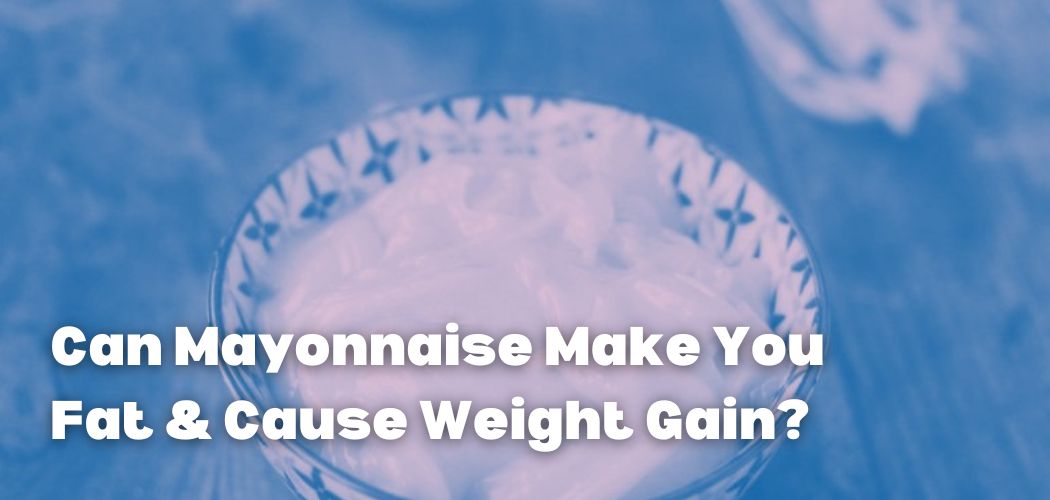Mayonnaise and Americans appear to have a love-hate relationship. It is the most common condiment in North America and may be found in a variety of popular American dishes, including tuna salad, deviled eggs, and tartar sauce.
However, mayonnaise appears to have gained a negative reputation.
As a high-fat food, mayonnaise is commonly considered unhealthy. It is primarily fat, and as a result, it is calorie-dense, therefore it is simple for calories and fat to quickly accumulate when portion proportions are ignored.

In addition, some individuals avoid the condiment out of worry that carelessly handled mayonnaise may be a breeding ground for bacteria. For instance, the safety of potato salad left outside at a Fourth of July BBQ or a tuna salad sandwich from a food truck may be uncertain.
Mayonnaise is a combination of many savory ingredients. These ingredients create a thick, creamy, stable emulsion when combined.
Mayonnaise is a mixture of oil, egg yolk, an acidic liquid (such as lemon juice or vinegar), and mustard.
The secret lies in the emulsion, the act of merging two things that would not normally combine, which transforms the liquid oil into a solid.
Contents
Contains Healthy Fats
Considering that egg yolk is one of the primary ingredients of mayonnaise, it is not surprising that the condiment is high in fat.
However, not all fats are created equal, and there are definitely health benefits to consuming a high-fat diet. Mayonnaise contains omega-3 and omega-6 fatty acids, which are unsaturated fats.
According to renowned medical departments, these unsaturated fats “may help lower cholesterol levels and lessen the risk of cardiovascular disease.” Therefore, although mayonnaise contains unhealthy saturated fats, it also contains healthy unsaturated fats.
And if you want to reap the full health benefits of mayonnaise’s fat, you can always choose a mayo with lower fat content.
Mayonnaise produced with avocado oil, for example, is typically lower in saturated fat while retaining all the benefits of unsaturated fats. Therefore, if you wish to consume mayonnaise every day, you have options.
Is It Nutritious?
Mayonnaise contains beneficial nutrients such as vitamin E, which benefits heart health, and vitamin K, which is essential for blood clotting.
It can also be created with healthy fats, such as omega-3 fatty acids, which are beneficial to the health of the brain, heart, and skin.

Keeping in mind that mayonnaise is predominantly oil, it is a condiment that is high in fat and calories, with 100 calories per tablespoon. Therefore, when choosing mayonnaise, you must consider your nutritional objectives.
If you are on a low-fat or low-calorie diet, you should measure the amount of mayonnaise you consume. On a low-carb or ketogenic diet, mayonnaise can be consumed in greater quantities.
Although mayonnaise is almost entirely composed of fat, the majority of it is unsaturated fat, which is a healthier fat.
Enhanced Inflammation
According to some nutritionists, manufacturers of mass-produced mayonnaise typically employ vegetable oils or soybean oils, “which are highly likely to include genetically modified components.”
Moreover, these soybean oils contain an excessive amount of omega-6, which can have detrimental side effects.
According to a certified nutritionist, “scientists speculate that an excess of omega-6 relative to omega-3 may contribute to chronic inflammation,” which has its own array of problems.
Specifically, persistent inflammation may contribute to the development of cancer, arthritis, cardiovascular disease, and diabetes.
Might Cause Weight Gain
Even consuming an excessive amount of healthful meals may result in weight gain if consumed in excess. It can be challenging to consume mayonnaise in moderation, despite the importance of moderation.
According to nutritionists, one tablespoon of mayonnaise contains approximately 90 calories and 10 grams of fat, which adds up. So, people who use mayonnaise every day may not realize that they are eating hundreds of calories.

Also, the soybean oil in mayonnaise from the store has been linked to obesity and other health problems. According to a study, “excessive dietary omega-6 polyunsaturated fatty acids” can contribute to obesity and other health issues.
Therefore, if you consume mayonnaise every day, especially if you do not monitor your calorie intake, you may gain unnecessary weight.
Concerns About Bacteria?
Most people worry about microorganisms in mayonnaise because it is usually made with raw egg yolk. But commercial mayonnaise is usually safe because it is made with eggs that have been pasteurized and are made in a clean way.
Additionally, mayonnaise contains vinegar or lemon juice, acids that may inhibit the growth of certain germs.
A 2012 study found that even though homemade mayonnaise has acidic ingredients, it may still have salmonella bacteria. Before making mayonnaise, some individuals choose to pasteurize one egg in 140°F water for 3 minutes.
No matter what kind of mayonnaise you use, you must always follow rules about food safety.
Dishes with mayonnaise shouldn’t be left out for more than two hours at room temperature. Open jars of commercial mayonnaise should be refrigerated and thrown away after two months.
Risk Of Heart Disease
Due to all the fat in mayonnaise, it can be easy to forget that it also contains a significant amount of salt, which is quite unhealthy. In particular, the sodium in mayonnaise may cause heart disease and other health problems.
It was noted that one tablespoon of mayonnaise has more than 100 milligrams of sodium. Since most people don’t measure out exactly one tablespoon of mayonnaise when they spread it over a sandwich, it’s possible that you’ll consume way too much sodium.

In addition, according to the American Heart Association, a diet high in sodium may raise your risk of hypertension, stroke, and heart failure.
Unfortunately, a high-sodium diet can also make you more likely to get migraines, kidney stones, enlarged heart muscles, and osteoporosis, among other health problems. This shows that a high-sodium diet has more drawbacks than benefits.
Conclusion
Mayonnaise may be a delightful and healthful addition to a low-carb diet if it is selected carefully, prepared and stored properly, and consumed in moderation.
Believe it or not, the mayonnaise you purchase from the store likely has added sugar.
In fact, the Centers for Disease Control and Prevention issued a warning to Americans regarding added sugars.
Americans consume excessive amounts of added sugars, which can lead to health issues such as weight gain and obesity, type 2 diabetes, and cardiovascular disease.
